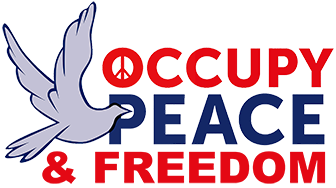UNAC EditorCuba, Public Health
La Jornada Editorial, published on Resumen English, May 29, 2021
In the midst of COVID-19 , the illegal blockade imposed against Cuba by Washington and maintained over the past more than 60 years has become the best ally of the coronavirus in Cuba. As Yuri Valdes, Associate Director of the Finlay Vaccine Institute revealed, the plan to immunize the people of Havana has proceeded much more slowly than hoped for, due to the United States sabotage of Cuba’s importation of the necessary supplies for the production and administration of vaccines.
It is necessary to remember that despite the blockade’s brutality – the use of the total power of Washington in the financial, political, diplomatic and military spheres to impose a prohibition against trade with Cuba on the rest of the world – the efforts of Cuba to develop a vigorous biomedical sector have permitted them to rely first on a medication used in the treatment of COVID-19 at the outset of the pandemic, while now they can count on as many as five different vaccine candidates against SARS-CoV-2.
It is also absolutely necessary to keep in mind that, in contrast with the stark brutal selfishness of the wealthiest nations in the world, Cuba reacted to the public health emergency with an outflow of solidarity, going to the aid of those who could benefit from the Cuban ability to help; in just the first months of the pandemic Havana sent 1,238 health professionals to 21 nations in Latin America, the Caribbean, Africa, Asia, and even Europe, with tits Henry Reeve International Medical Brigades, who played a key role during the critical period of the pandemic in Italy. The Henry Reeves Brigade has earned several Nobel Peace Prize nominations for actions such as these and many other during the almost 16 years since their creation, particularly the heroic aid to patients in western Africa during the Ebola epidemic of 2014. Mexico can never forget the invaluable support of our sister nation when the coronavirus threatened to overwhelm our national health system, a crucially difficult time during which Cuba sent about 700 health workers, most of whom took care of patients in Mexico City.
For the reasons stated above, as well as an inescapable ethical imperative, humanity as a whole ought to join in the call of the Cuban National Assembly, so that legislators all over the world demand a halt to these illegal and criminal sanctions. The economic, financial, and trade embargo of Cuba has been condemned by the General Assembly of the United Nations on 28 separate consecutive occasions, by practically unanimous vote – with the U.S. position supported only by fascist governments like those of Jair Bolsonaro and Benjamin Netanyahu. While the unilateral blockade has always been an insult to the Cuban people and the principle obstacle to Cuba’s development, under the current circumstances it has become a death sentence for thousands of Cubans; it should be denounced in the most forceful terms in all international forums.

Recent Comments